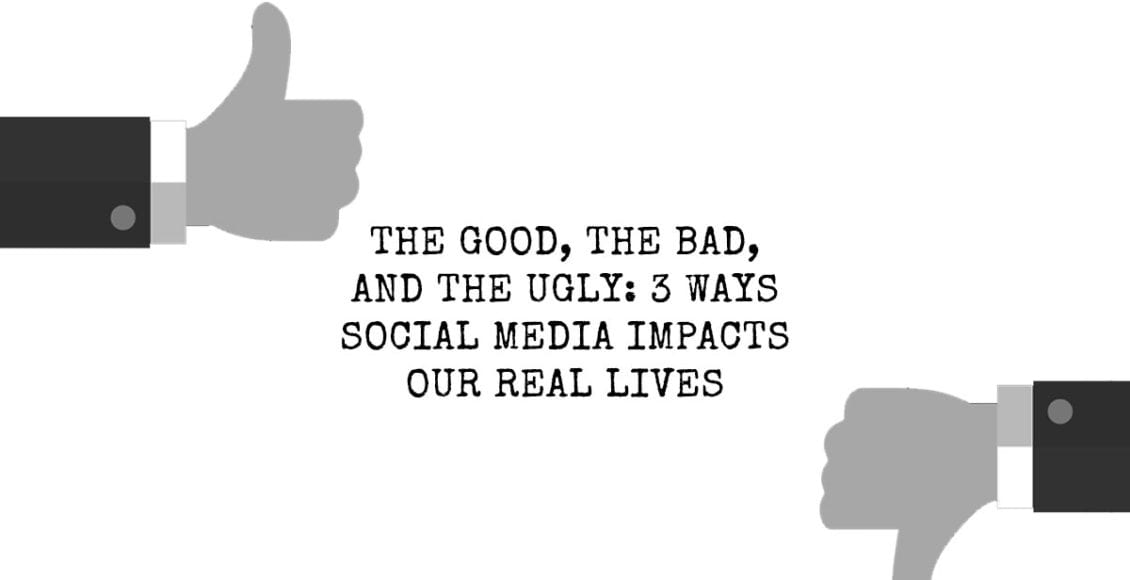The Good, the Bad, and the Ugly: 3 Ways Social Media Impacts Our Real Lives

“You are what you share,” wrote Charles W. Leadbeater of our obsession with social media. It’s tempting to think that these words have a limited amount of truth – but in our image-obsessed culture, the façade we create for ourselves all too often becomes our reality. Our self-image, our public persona, and the choices that we make are undeniably linked to one another.
Whether we like it or not, our time spent on social media can impact our decisions and identity in the real world.
Here’s the good, the bad, and the ugly when it comes to social media’s influence on our daily lives:
The Good: We become healthier when we give in to positive peer pressure.
Peer pressure is not always such a bad thing. In fact, when we surround ourselves with positive people, our peers become more likely to build us up than bring us down. A recent Stanford University study, in fact, confirmed that engaging in fitness-based social media with our peers can cause us to become more active. This study analyzed data from six million users of a fitness app over a five year span. The app was designed to track physical activity, with an option to share with friends via social media.
Researchers found that users who engaged with the social media aspect of this app were more aggressively active, engaged in more frequent physical activity, and stuck with their fitness routine for a longer amount of time. With the rising popularity of dietary accountability groups to share recipes and inspiration, this positive peer pressure could very well extend to our food choices. Currently, over two-thirds of American adults are overweight or obese. Could our obsession with social media, of all things, be a tool in turning this statistic around?
The Bad: Negative peer pressure can encourage us to make poor choices.
As good as positive peer pressure can be, negative peer pressure can be even worse. Social media can normalize – and even glorify – problems such as alcohol abuse, drug use, bullying, promiscuity, gossip, and excessive materialism. One study determined that after seeing pictures of peers smoking on social media, test subjects were much more likely to give in to the urge to smoke themselves.
If we surround ourselves with selfie-taking narcissists, we are more likely to bring this behavior – and the culture of vanity and low self-esteem that goes with it – into our own lives. Karen Marie Moning once wrote, “Who and what we surround ourselves with is who and what we become. In the midst of good people, it is easy to be good. in the midst of bad people, it is easy to be bad.” With a window into our peers’ lives constantly available to us, these words are more relevant now than ever before.
The Ugly: Cyberbullying is real, and it is a growing problem.
Cyberbullying is a profoundly tragic result of our social media culture. With instant information and connection at our fingertips, cruelty has become more powerful and fast-acting than in any generation before. Cyberbullying has been strongly – and unsurprisingly – linked to depression.
This finding is particularly significant when one considers that nearly one in four adolescents report being bullied – very publicly – via social media. Sadly, teenagers are particularly vulnerable to this kind of abuse, and particularly ill-equipped to handle it. They suffer shame, humiliation, and deteriorating self-esteem as a result. Some even consider suicide as an option.
Social media is an undeniably powerful force in the modern world – but is it a positive one?
How has this way of connecting with others impacted your life? Would you give it up if you could? Or has this monster become too much a part of us to truly leave behind?

